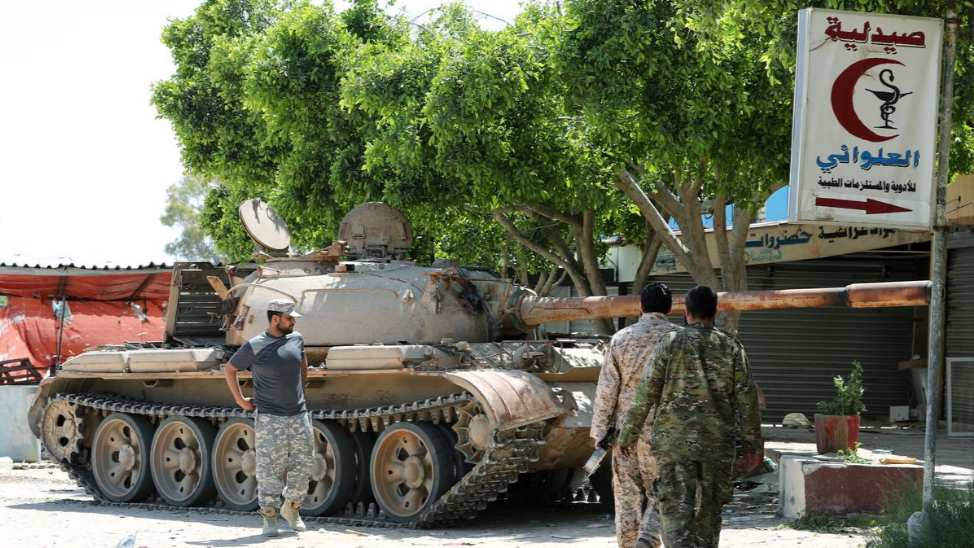The United States and Russia both said on Thursday they could not support a United Nations Security Council resolution calling for a ceasefire in Libya at this time, diplomats said, as mortar bombs crashed down on a suburb of the Libyan capital, Tripoli.
Russia objects to the British-drafted resolution blaming eastern Libyan commander Khalifa Haftar for the latest flare-up in violence when his Libyan National Army (LNA) advanced to the outskirts of Tripoli earlier this month, diplomats said.
The United States gave no reason for its position on the draft resolution, which would also call on countries with influence over the warring parties to ensure compliance and for unconditional humanitarian aid access in Libya, which has been gripped by anarchy since Muammar Gaddafi was toppled in 2011.
Concerns of U.S. and Russia
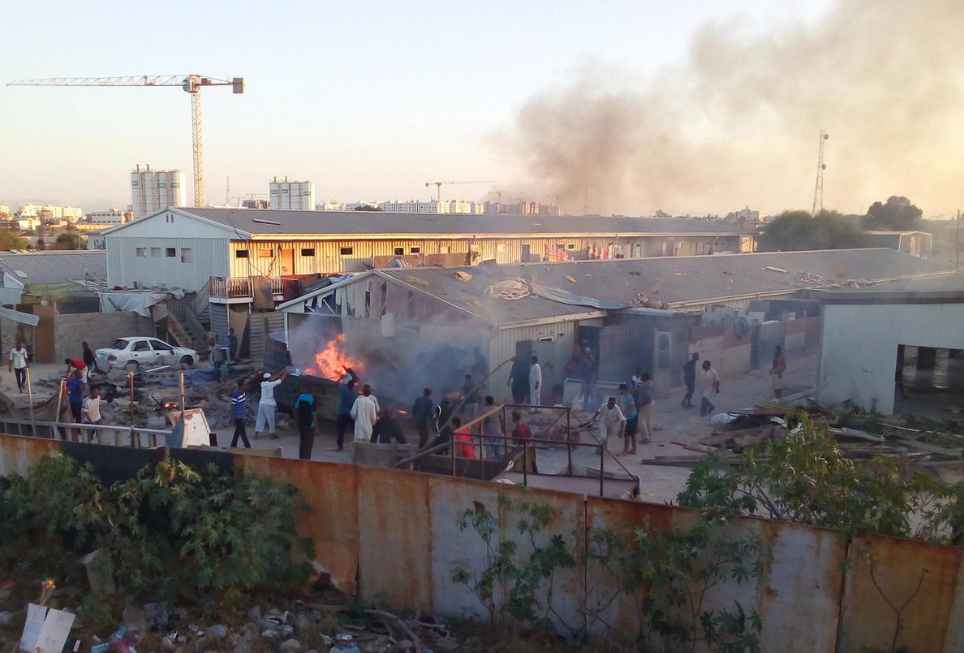
Smoke rises as people check the damage after a rocket hit a camp for displaced people during the fight between rival armed groups in Tripoli, September 2, 2018. /Reuters Photo
Smoke rises as people check the damage after a rocket hit a camp for displaced people during the fight between rival armed groups in Tripoli, September 2, 2018. /Reuters Photo
A resolution needs nine votes in favor and no vetoes by the United States, Britain, France, Russia or China, the so-called permanent five, to pass. It was not immediately clear if Britain would persist with negotiations on a draft next week.
The U.S. reluctance to support Security Council action is in contrast to Washington's earlier public opposition to Haftar's offensive, which began while U.N. Secretary-General Antonio Guterres was visiting Tripoli.
Some U.N. diplomats have suggested the United States might be trying to buy time as President Donald Trump's administration works out how to deal with the latest developments in Libya.
“I think there are a range of views in Washington on the policy side and they haven't reconciled them and they're not entirely certain where the president is on it,” said a senior U.N. diplomat, speaking on condition of anonymity.
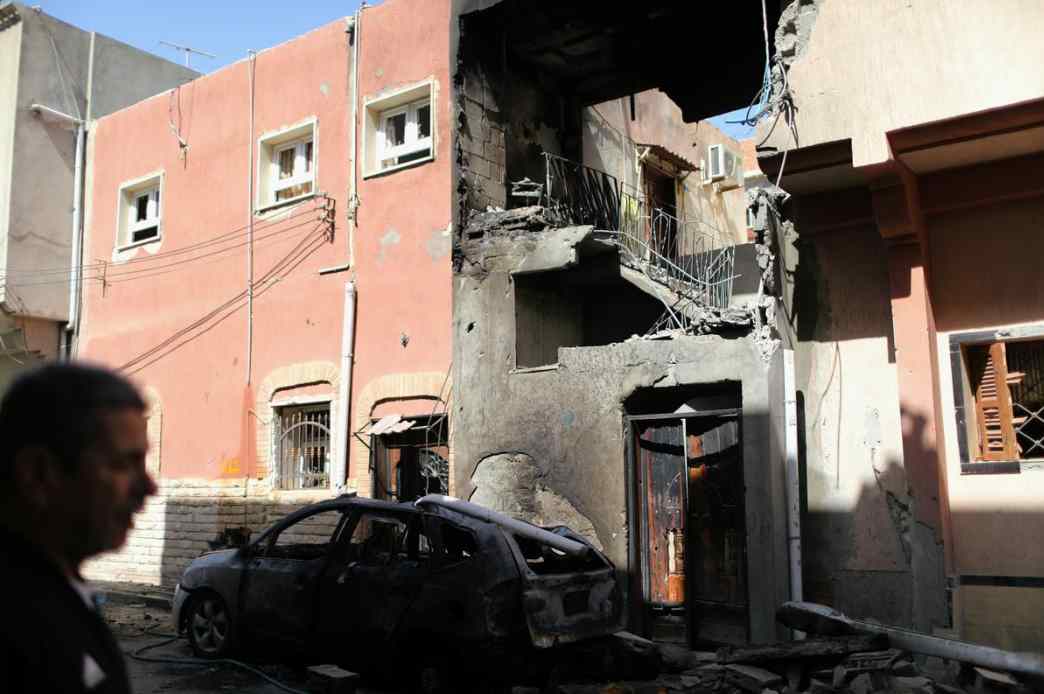
Migrants in trucks arrive at a detention center in Gharyan, Libya, October 12, 2017. /Reuters Photo
Migrants in trucks arrive at a detention center in Gharyan, Libya, October 12, 2017. /Reuters Photo
“The American system is trying to evaluate all the scenarios and work out which one is in America's best interest and just hasn't done that yet,” the diplomat said.
On Russia's side, Russia has been engaging in Libyan politics by supporting Khalifa Haftar, supplying him with mercenaries and weaponry. According to The Telegraph, Russia's largest military contractor Wagner Group has been sending mercenaries to help Haftar's forces in Benghazi. Wegner is also supporting the LNA with tanks, artillery, drones, and ammunition.
The United States and Russia made their positions clear during a closed-door council briefing by U.N. Libya envoy Ghassan Salame, who diplomats said appealed for a ceasefire.
International divisions boost Haftar
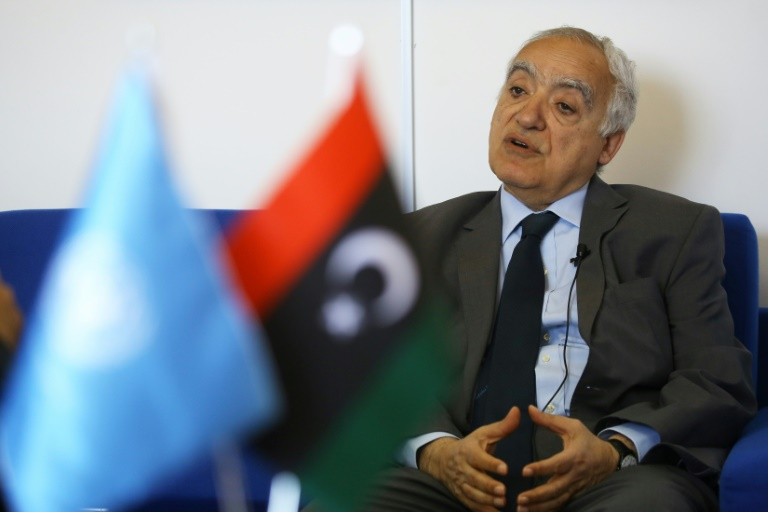
UN envoy for Libya Ghassan Salame, Tripoli, April 18, 2019. /AFP Photo
UN envoy for Libya Ghassan Salame, Tripoli, April 18, 2019. /AFP Photo
Ghassan Salame said international divisions had "encouraged" Haftar, who is backed by Russia and seen by his allies Egypt and the United Arab Emirates as a bulwark against Islamists.
The UN Security Council was divided Wednesday on how to address the crisis in Libya after fresh negotiations on a draft resolution demanding a ceasefire in Tripoli failed to yield agreement.
The divisions of U.S. and Russia exempted, France was accused by the internationally recognized government, with its interior ministry criticizing France's support to Haftar and saying it would halt security cooperation with Paris.
Paris has given Haftar support in the past, however, viewing him as the best bet to end years of chaos since the 2011 ouster of Muammar Gaddafi.
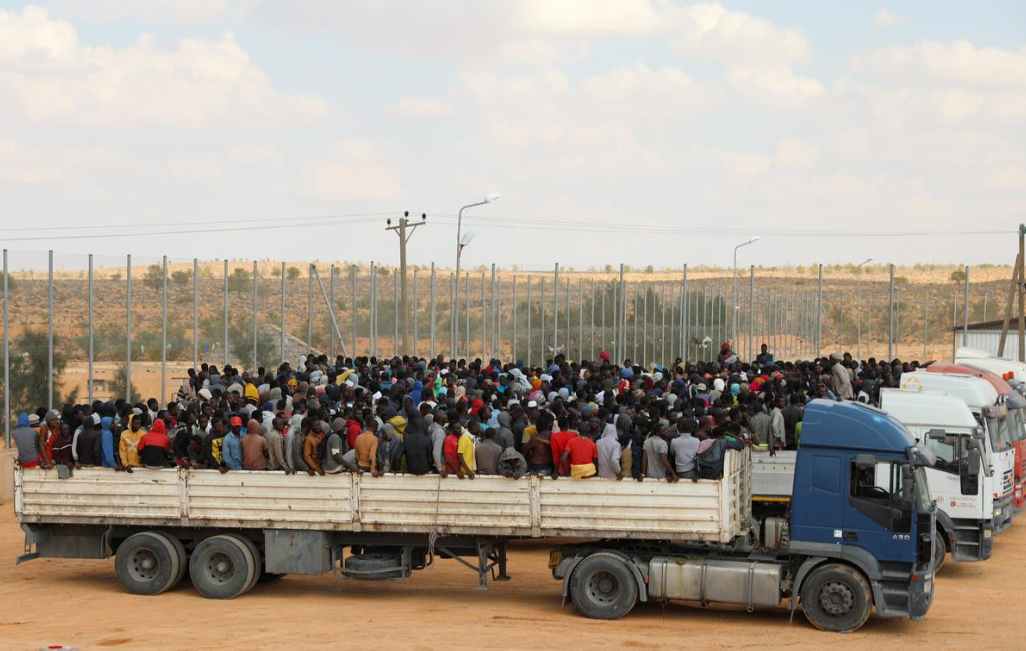
Migrants in trucks arrive at a detention center in Gharyan, Libya, October 12, 2017. /Reuters Photo
Migrants in trucks arrive at a detention center in Gharyan, Libya, October 12, 2017. /Reuters Photo
A French presidential source said in response to the accusation that France supported the internationally recognized government in Tripoli. The French government was not immediately available for comment.
Italy, with considerable oil interests in the OPEC member, and interest in stemming migration across the Mediterranean from its former colony, supports Serraj's government, which receives support to turn back asylum-seekers and was furious with French government's reluctance to back a recent European Union resolution urging Haftar to halt his advance.
Although Germany, which holds the council presidency, called an emergency UN Security Council meeting in an attempt to defuse the fighting after Tripoli witnessed heavy fighting, critics have called Germany's reaction "inaudible."
'Please find a solution'

Migrants look out of a barred door at a detention center in Gharyan, Libya, October 12, 2017. /Reuters Photo
Migrants look out of a barred door at a detention center in Gharyan, Libya, October 12, 2017. /Reuters Photo
Foreign powers are worried but unable to present a united front over the latest flare-up in the cycle of anarchy and warfare, which according to the World Health Organization (WHO) Thursday, has killed 205 people, including 18 civilians, and wounded 913 since the war.
“We say to the United Nations and the Security Council: listen. Listen to the bombing... Rockets are coming down on us. For this reason, please find a solution for us,” said Youssef Salem, a displaced man from al-Suani.
Thousands of civilians are trapped in the conflict zones. Many of them requested evacuation, but authorities and aid groups have been cut off by shifting front lines. Doctors Without Borders told DW that migrants locked in detention centers in conflict zones are "particularly vulnerable" due to inhumane conditions in the camps and no ability to make choices about their own safety.
(With input from agencies)

